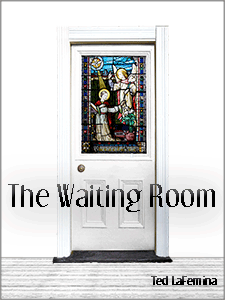It doesn’t take long, in stud ying the scriptures, to realize that the Christian God is a god of love, and so the question for those who put their faith in Christ is not should I love?, but how best to show love? These questions are quickly put to the test when considering how to respond, as a society, with those who have committed, and are likely to continue to commit crimes. Saying I will show mercy and forgives, and do nothing may sound like the Christian thing to say, but is doing nothing showing mercy to this individual’s next victim? Obviously not.
ying the scriptures, to realize that the Christian God is a god of love, and so the question for those who put their faith in Christ is not should I love?, but how best to show love? These questions are quickly put to the test when considering how to respond, as a society, with those who have committed, and are likely to continue to commit crimes. Saying I will show mercy and forgives, and do nothing may sound like the Christian thing to say, but is doing nothing showing mercy to this individual’s next victim? Obviously not.
When someone close to us is victimized by a crime, most of us have an immediate visceral response toward the perpetrators: we want them hunted down and punished. An eye for an eye, and a tooth for a tooth, we may cry, mistakenly taking this paraphrase of the Hammurabi’s Code (Hammurabi ruled the Babylonian Empire from 1792-50 BC) as Biblical scripture.
What I’ve termed a visceral response is more appropriately termed a heuristic response: a decision arising from the hard-wired, low-level neural pathways that have helped the human race survive since the dawn of time. One of the key characteristics that sets humans apart from animals is that we have been gifted by God with an alternative means of decision making. We have the ability to pause, to ponder, and to over-ride our low-level automated responses, by weighing and analyzing facts and evidence.
Most animals do not have this ability. For example, many of us have had the unpleasant experience of straying too close to a honeybee’s hive and have paid the price with a bee sting. Honeybees pay the ultimate price for defending their family–their bodies are torn apart as their barbed stinger lodges itself into the intruders flesh. The heuristic response of a honeybee is very similar to that of humans, because our heuristics were both developed for tribe-oriented preservation, and the bee’s decidedly un-analytic response to threats against its tribe (hive) have obviously served the species well, in that honeybees are still around today.
And in the same way, if taking the survival of the species as the sole measure of success, our human heuristic response of an eye for an eye has worked for millennia. But Jesus does not take the survival of the species as the sole measure of success, He wants more. In Matthew 5:38-39 Jesus said: You have heard that it was said, ‘Eye for eye, and tooth for tooth.’ But I tell you, do not resist an evil person. If anyone slaps you on the right cheek, turn to them the other cheek also.
Pondering these words demands that we set aside our heuristic response and take the time and energy to carefully analyze our approach to criminal justice. The idea of demanding more than the heuristic response isn’t a new message from Jesus. The same notion is echoed in Zechariah 7:9: This is what the LORD Almighty said: ‘Administer true justice; show mercy and compassion to one another.’
Modern theories of punishment, as studied in introductory classes on criminal justice, discuss four reasons for punishing criminals: retribution, deterrence, incapacitation, and rehabilitation, but notice that these reasons are derived from different sources.
The first, retribution, is nothing more than a re-wording of King Hammurabi’s an eye for an eye. It is the heuristic decision making response that is no different than the honeybee’s save the hive sting-an evolutionary response that has achieved the same tribe-survival purpose as deterrence, incapacitation, and rehabilitation, but without the thought.
In Dietrich Bonhoeffer’s The Cost of Discipleship, the theologian reminds us that when Jesus died on the cross, he took on himself the punishment of all sin, and therefore, it is impossible for someone to both accept Christ and demand punishment for sin. If you accept Christ, you have to accept the fact that Christ paid the price for everyone else’s sin at the same time He paid the price for yours. His death was the completion of the Lord’s claim, in Deuteronomy 32:35, Vengeance is mine.
The second, third, and fourth reasons for punishment are analytic responses to criminal behavior. They are an alternative, reasoned, three-pronged approach to maintain the safety of our families and society.
All of us are born with selfish desires, and all of us struggle, to varying degrees with temptations. Even the great Apostle Paul, who wrote (in perhaps the most transparent passages of all scripture) I do not understand what I do. For what I want to do I do not do, but what I hate I do (Romans 7:15). With solid family and community support, and active male and female role-models in our lives, most of us learn to overcome these selfish desires, understanding that our decisions and behaviors that benefit our family and community, as a whole, benefit us, as a whole, as well. However, we do not live in a utopian society, and many grow up without positive guides to our thinking, and therefore, the selfish desires have a tendency to win out. Deterrence, consists of a bold reminder by society, that attempting to satisfy selfish desires at the expense of others will not lead to satisfaction at all, but rather will lead to misery. Deterrence should stand as the last ditch, yellow-striped guardrail of community support. It has limited effect when it becomes the primary community support mechanism, and almost no effect on those under the age of 26, which is when the part of the human brain that makes risk-based decisions completes formation. Prescribing punishment to others, as a means of deterrence, should always be carried out wisely, and communicated effectively, so that the message of deterrence registers.
Incapacitation simply means to take a dangerous person off the streets. If a person is a sexual predator that has been attacking women, then it is not merciful to the women of our society to allow them to roam free. Incapacitation does not mean tiny prison cells, frightening and dangerous living conditions, and substandard food, sanitation, and medical care. These are the hallmarks of revenge, not incapacitation. Incapacitation is not about punishment, it is about the safety of the rest of the community.
Rehabilitation is the third prong of the reasoned approach to punishment, and the main point of entry, for Christians, into the hearts and lives of the incarcerated. In Mark 2:17 Jesus said to them, “It is not the healthy who need a doctor, but the sick. I have not come to call the righteous, but sinners.” And from Romans 12:14 Bless those who persecute you; bless and do not curse, and from Matthew 25:44 “They also will answer, ‘Lord, when did we see you hungry or thirsty or a stranger or needing clothes or sick or in prison, and did not help you?’ He will reply, ‘Truly I tell you, whatever you did not do for one of the least of these, you did not do for me.’”
With deterrence and incapacitation, we begin to live up to the wisdom found in Isaiah 1:17 Learn to do right; seek justice. Defend the oppressed. Take up the cause of the fatherless; plead the case of the widow.
With rehabilitation, we can begin to live out the wisdom from Micah (Micah 6:8) He has shown you, O mortal, what is good. And what does the LORD require of you? To act justly and to love mercy and to walk humbly with your God.
Having devoted some time to prison ministry over the past few years, I’ve come to understand the Lord’s words on humility. Many of the men I’ve met were incarcerated for a decision they made in a split second. A quick flash of anger, an over-zealous response to an attack, or a sudden fit of jealousy, or envy. I’ve found myself in similar situations in the past, and it is only through the Grace of God that nothing tragic happened in those moments. Many others I’ve met in prison, most, I would say, have themselves been victims or traumatic crimes in their youth, and most did not grow up in positive communities, with loving mothers, fathers, and neighbors, watching and guiding them as they tried to navigate the emotional whirlpools of adolescence, and instilling in them firm moral foundations. At the end of a day of ministry, behind the prison walls, I exit the institution thinking that it is society that has acted criminally towards these men, allowing them to have been raised in such a manner. How many of us, would not also be living behind bars if we had been raised under such circumstances? Humility.
And so with humility, we recognize that we all have weaknesses, and we all have moments where we find those weaknesses being left unchecked.
As the attitude of humility sinks in, another understanding of Micah’s call to justice comes to light. Western culture, and particularly American culture, is very individual centric, and because of this, we have a tendency to hold each individual accountable for their own decisions and their own success in life. We are blinded to the fact that we live in near total dependence on the rest of society. Which of us could live a week without the water lines or grocery stores that others have built? How should we, as a society, show justice to men and women raised in the foster care system, raised in drug and crime ridden neighborhoods, who suffer psychological disorders, learning disorders, or have suffered traumatic life events with no one walking beside them, serving as their guide in this complex world?
In the city of Rome, in the early days of the Church, what set the Christians apart is that they took care of the weak and unwanted. In Rome, the unwanted young and the weak were left to fend for themselves and die, but the Christians cared for the helpless. Through these actions, the light of Christ showed through them, and it was noticed, and it is a major reason why we still know the name of Jesus today.
The part of justice that is missing, then, is the justice that society must give to those who have fallen through the cracks and into the self-serving, selfish patterns of criminal activity. Christ came along side us, in our sin, and helped us (and continues to help us) to understand how to leave it behind and grow into a new pattern of thinking. In this way, we, as Disciples of Christ, must come along side those in prison and do what we can to help them come into a new way of understanding the identity that awaits them in the Kingdom of God, which is here now. In His Sermon on the Mount, Jesus tells us that as you wish that others would do to you, do so to them (Luke 6:31). For those who have come to faith, we know that others have already done to us. Others have stepped in and helped us understand ourselves, our place in God’s Kingdom, and our role in His community. The natural response to this blessing, would be to share it with those still in need.
And finally, mercy. While it is true that societal weakness and unhealthy social micro-cultures have a major and direct impact on the decision patterns of individuals in a community, our God is a God of free will and as Paul writes, in 1 Corinthians 10:13, No temptation has overtaken you that is not common to man. God is faithful, and he will not let you be tempted beyond your ability, but with the temptation he will also provide the way of escape, that you may be able to endure it.
So the truth is that in most cases, just a moment before a crime is committed, an individual has made a decision to commit the crime. They accepted the temptation, they took what did not belong to them, they hoped to gain, and caused another to lose.
Forgive us our sins, for we also forgive everyone who sins against us. Luke 11:4. The Lord’s Prayer. For those who can accept this teaching as a command, then it is as simple as that. For those who don’t accept commands without further understanding, Jesus provides it a few chapters later in Luke 17:3-4.
If your brother or sister a sins against you, rebuke them; and if they repent, forgive them. Even if they sin against you seven times in a day and seven times come back to you saying ‘I repent,’ you must forgive them.
Rebuking in the form of a sharply worded criticism is occasionally effective to one with a prepared and receptive mind, but for those who are truly lost in themselves, an effective rebuke is a long process. It means taking the time to listen and understand where the person is at mentally, emotionally, and spiritually, and then going from there. Showing them the love of God in tangible ways, through the creation of safe and stable environments, through caring, teaching, counseling, mentoring, and often through medical care. When we take the time to do this, we find that we, ourselves, draw closer to Jesus, because we become more aware of how Jesus, himself, is doing these same things for us.
Christ’s forgiveness is always available to us, and it is our repentance that enables us to accept it. And so in the same way, our forgiveness must always be available, waiting for the moment when the trespasser finally repents, enabling us to transfer this blessing onto them.
Christ taught in an environment in which there was little hope for his disciples to participate directly in public policy debates, nor did Peter, Paul, or the other disciples, and so the Biblical text provides little direct guidance in this area. But as Christians living in democratic societies, we have an opportunity to take the love and wisdom of the Lord’s teaching and translate it into a language that the rest of our community can understand. The value and effectiveness of God’s wisdom isn’t limited to those who accept the teachings of the Bible: it actually does work for the good of all in a secularized society.
When societies forgo revenge, establish rational, effective deterrence, take swift action to remove those who are actively harming society, but then puts in the effort to rehabilitate those incarcerated, everyone benefits. Pains are healed, families are restored, mothers and fathers are returned to their children, and men and women can contribute to society, rather than society paying to warehouse them in dark prison institutions.
While the message of the New Testament highlights our personal relationship with the Lord and subsequent personal response to his calling, the message of the Old Testament still stands. God held his people, as a people, accountable to His calling. And so our response to our faith must consider multiple aspects: our personal response to those who harm ourselves and our families, our personal response to those currently behind bars within the local prisons of our community, and finally, our response as community members who can participate in shaping the social and political landscape of our communities, to encourage public policy founded on analytic and rational response to the problem of crime in our society, in accordance with the wisdom gifted to us by the Lord.




 , shares how we each construct beliefs about ourselves, others, and the world, through vast extrapolations from comparatively small amounts of factual information collected over the course of our life (e.g. who’s actually read the Obama Care act, the full text of the latest supreme court decisions, or the plethora of climate study reports? Yet we have our firm opinions don’t we?). Further, Kathryn uncovers our inclination to reject ideas or information that contradict notions that we have already constructed for ourselves. Within the New Testament, this propensity is evident within the response many had to both Christ and, later, the apostles. The Jews of the day had constructed a notion of religion that was heavy on law and tradition, but deficient in compassion and mercy. Through affectionate love, reason, and miracles, Jesus and his disciples shared a different message–a message that few, at the time, would accept. Within the Christian community today, the same problem exists. Most of us will not openly consider the value of the traditions or theological arguments of another denomination, even while being dumbfounded as to why the other doesn’t see the obvious supremacy of our own. Of course, the same principal holds for other components of our belief system: political, environmental, & societal.
, shares how we each construct beliefs about ourselves, others, and the world, through vast extrapolations from comparatively small amounts of factual information collected over the course of our life (e.g. who’s actually read the Obama Care act, the full text of the latest supreme court decisions, or the plethora of climate study reports? Yet we have our firm opinions don’t we?). Further, Kathryn uncovers our inclination to reject ideas or information that contradict notions that we have already constructed for ourselves. Within the New Testament, this propensity is evident within the response many had to both Christ and, later, the apostles. The Jews of the day had constructed a notion of religion that was heavy on law and tradition, but deficient in compassion and mercy. Through affectionate love, reason, and miracles, Jesus and his disciples shared a different message–a message that few, at the time, would accept. Within the Christian community today, the same problem exists. Most of us will not openly consider the value of the traditions or theological arguments of another denomination, even while being dumbfounded as to why the other doesn’t see the obvious supremacy of our own. Of course, the same principal holds for other components of our belief system: political, environmental, & societal.


